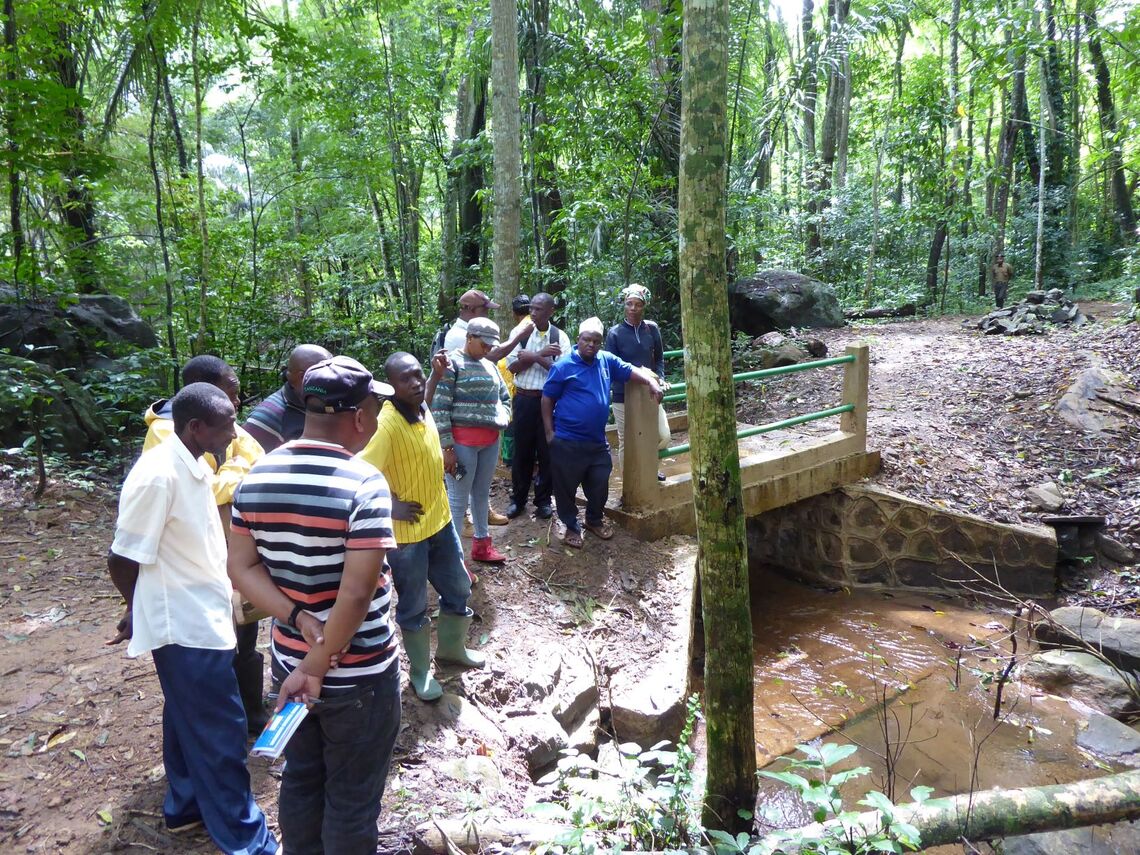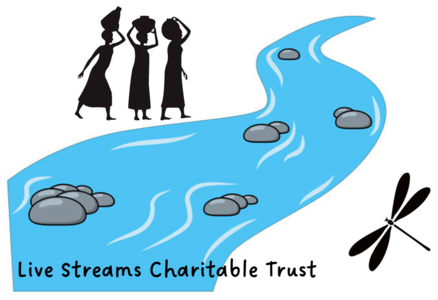
AFON staff reported that the stream where the damselfly population is present was dry from late December 2022 to late February 2023 as there was almost no rainfall during this period. This was a major concern and they were relieved to observe two adults (a male and a female) during a survey carried out on 10 March. However, a total of only three adults (all males) were observed in subsequent weekly sampling with the last sighting recorded on 24 April. No Amani Flatwing were seen in a nearby stream or the river into which both streams flow.
Participants commented that the survey findings show that the survival of the last remaining population of the Amani Flatwing damselfly is extremely precarious. Apart from drought they identified the main threat as contamination of the water from detergents used to wash clothes and from discarded rubbish such as bottles containing oil. They also noted that water is collected from the stream by villagers and school children for drinking and that this lowers the water level at critical times.
Participants visited the stream and were excited to see one of the other endemic damselfly species, the Tanzania Jewel (Platycypha auripes) which is listed as ‘vulnerable’ on the IUCM red list. They suggested that a tap could be installed close to the stream with a concrete basin for washing clothes. The dirty water would drain into an area away from the stream. They proposed that a signboard should be placed by the stream explaining the importance of conserving the water quality and encouraging people to use water from the tap. They also stated that more research into the biology of the Amani Flatwing damselfly is needed. This is because it is not known where the female damselflies lay their eggs or where the larvae live.
Participants expressed their commitment to make others in their communities aware of the importance of protecting the habitat. They undertook to support AFON in looking for funds to install the tap and carry out other conservation measures.
